Daniel J. Walkowitz, Emeritus Professor of Social and Cultural Analysis and Professor of History at New York University, has specialized in labor history, urban history and public history. In nearly a dozen books, many articles and four films for public television he has worked to bring America’s past to both academic and broad public audiences. Among his books are
Worker City, Company Town: Iron and Cotton Worker Protest in Troy and Cohoes, New York, 1855-1884 (Illinois, 1978), with Lewis Siegelbaum,
Workers of the Donbass Speak: Survival and Identity in the New Ukraine, 1989-1994 (SUNY, Albany, 1994);
Working With Class: Social Workers and the Politics of Middle-Class Identity (North Carolina, 1999), and, co-edited with Lisa Maya Knauer,
Memory and the Impact of Political Transformation in Public Spaces (Duke, 2004) and
Contested Histories in Public Space: Memory, Race, and Nation (Duke, 2009). In 2010 he published
Rethinking U.S. Labor History, a co-edited (with Donna Haverty-Stacke), a collection of new work on work and labor published to mark the 25
th anniversary of his 1984 collection (edited with Michael Frisch),
Working-Class America. In 2010, he also published, City
Folk: English Country Dance and the Politics of the Folk in Modern America (NYU Press). His most recent work includes a monograph,
The Remembered and Forgotten Jewish World: Jewish Heritage in Europe and the United States (Rutgers, 2018).
